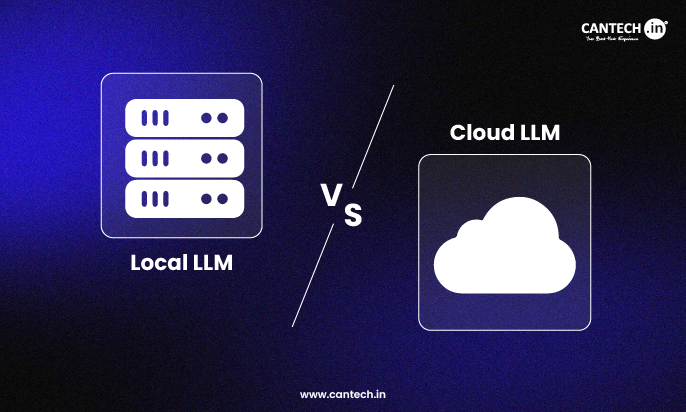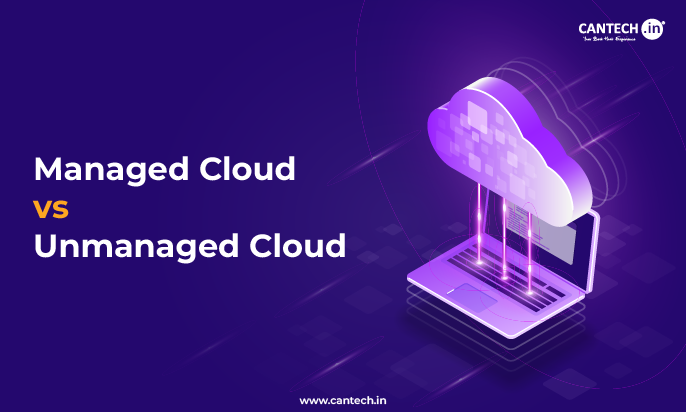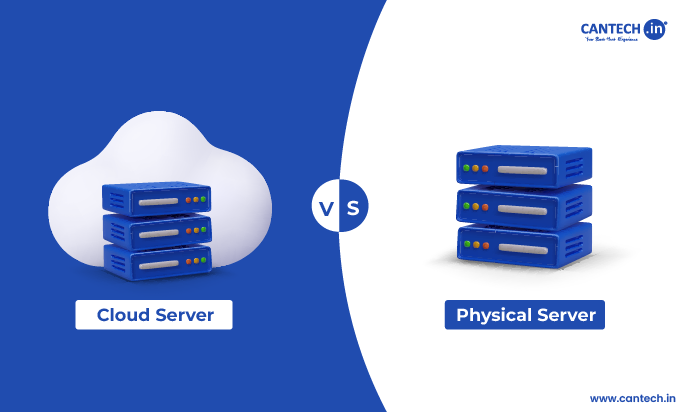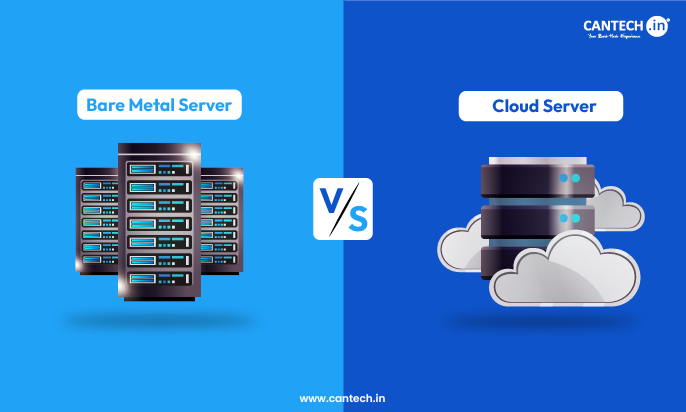Your business IT infrastructure forms its backbone in the digital age. It helps in operations, protects data and provides services to your customers. However, in the context of accommodating this essential infrastructure, the options are paralyzing. There are three prevailing models, which are Colocation, Managed Hosting and Cloud.
All have a different combination of control, responsibility, scalability, cost. The wrong one may result in unwarranted costs, bottlenecks, or security risks. Selecting the appropriate one may turn to be a strong competitive strength.
This guide clears the complexity. We are going to unravel these hosting solutions, highlight their key features and give you a clear guide on how to find the right hosting solution satisfying the specific needs of your organization, your budget and technical expertise.
Fundamentals
We should begin with a definition of each model before we jump into the comparisons, and to do this, we will start off with the basis of modern hosting.
What is Cloud Hosting? The Virtualized Powerhouse
Cloud computing Cloud hosting is a pay-as-you-use system where computing services (servers, storage, databases, network) are delivered on the internet by a cloud computing provider (as of 2021) that operates on a pay-as-you-use business model (including Amazon Web Services (AWS), Microsoft Azure, and Google Cloud Platform (GCP)).
Read More : What is Cloud Hosting?
Cloud Computing Basics
Physical hardware is not owned by you, but is rented in a massive shared capacity of a virtualized infrastructure. Such an environment is facilitated by hypervisor software that builds and runs virtual machines (VMs) and is highly flexible.
How it works: It can be provisioned in minutes through a web portal or API. The second, minute or hour you usually pay only what you consume.
Key Characteristics
- On-Demand Self-Service: Provision resources that are not human-touched.
- Broad Network Access: Network access is accessible to all standard clients (e.g., laptop, mobile phone) to services.
- Resource Pooling: Resource of the provider is pooled to assist several consumers.
- Rapid Elasticity: The resources may be easily increased or decreased quickly, and often automatically.
- Measured Service: The use of resources is checked, regulated, and reported, which is transparent.
Types of Cloud Hosting
- Public Cloud: The most widespread one. A third-party provider owns and operates the resources and can be shared among multiple organizations (tenants). It delivers maximum scalability and cost-efficiency while keeping the cloud server cost in India optimized for variable workloads.
- Private Cloud: It is a cloud that is dedicated to a single organization. It can be deployed on-premises in your own data center, or off-premises, on a private cloud. It is more controlled and secure, and generally more expensive than public cloud.
Benefits of Cloud
Unmatched Scalability
Cloud computing offers a certain degree of scalability that could hardly be achieved with on-premise infrastructure. This becomes more so because cloud providers have vast and pooled resources. Be it the sudden and unexpected increase in traffic on your e-commerce site or a planned marketing exercise that causes a flood of new users, you can spin up new virtual servers, new storage or new processing power on-demand.
In addition to serving traffic spikes, this scalability aids in long-term expansion. Your business will be able to scale in an infrastructure transparently and very easily as your needs change, as your business grows without the necessity of crucial capital outlay in new hardware.
Cost-Efficiency
A change in the CapEx to an OpEx model is one of the most interesting financial reasons why cloud computing should be adopted. In the case of traditional hosting, you are required to invest heavily in hardware such as servers, storage arrays and network equipment.
On the contrary, cloud computing is based on a pay-as-you-use philosophy where the above capital expenses are converted to operational cost. You pay only for what you use in computing resources, as happens with utility bill.
High Availability & Redundancy
A downtime is disastrous to any business, and it may result into loss of revenue, customer confidence, and reduction of productivity. To overcome this threat, cloud providers base their infrastructure on high availability and redundancy.
Should there be a hardware failure, natural calamity or power cut in one location, the cloud service will automatically and seamlessly failover to a redundant system in the other location. This in-house redundancy will keep your services and data online with minimum disruption.
Speed and Agility
The speed at which you can innovate is a critical competitive advantage in today’s fast-paced market. With a traditional on-premise setup, provisioning a new server or environment can take weeks or even months. You need to procure hardware, rack it, stack it, and configure it, a process that is often slow and bureaucratic. This delay can stifle innovation and prevent you from capitalizing on new market opportunities.
Cloud computing dramatically accelerates this process, giving your business unparalleled agility. Through user-friendly web interfaces and powerful APIs, developers can provision and deploy the necessary resources, from a single virtual machine to an entire, complex application environment—in a matter of minutes.
Disadvantage of Cloud
- Risks of Cost Overruns: Unmanaged, cloud sprawl and data egress charges will result in unexpectedly high bills.
- Less Control: You are not in control of the underlying physical hardware or hypervisor.
- Security and Compliance Shared Responsibility: The provider secures the cloud platform but you are the one to secure your data in the cloud, a paradigm that is frequently misconstrued.
- Variability in performance: With a multi-tenant public cloud, noisy neighbors can at other times affect the performance.
What is Colocation? Your Rack in a Fortress
Introduction Colocation (Colo) This is a model in which you own your own servers, storage, and networking equipment but lease physical space in a third-party data center. You are leasing a safe cage, cabinet or rack and the critical infrastructure that underpins it.
How Colocation Works?
- You buy your own servers.
- A colocation facility leases you space (a rack unit or complete cabinet).
- The colocation company provides the facility, physical security, power (including backup systems and Uninterrupted Power Supply), air conditioning, and bandwidth.
- You have complete ownership of your hardware, operating systems and software.
Colocation Advantages
Total Hardware Control
The control of your hardware is one of the greatest benefits of colocation. Colocation gives you the ability to acquire and install your own servers, networking devices and storage arrays as opposed to cloud hosting or managed hosting where you are utilizing the equipment of a provider.
This is not just a one-time granular control. Because you have the equipment you own to upgrade, downgrade, or even swap out some parts as you feel necessary, you do not need to negotiate with a provider or wait until you get a service-level agreement before a change can take place. You have control to keep your own refresh cycles, and keep your technology up to date and working at its finest.
Predictability and High Performance
You can only use your hardware in a colocation environment devoted to your applications and workloads. This avoids the noise neighbor problem, which is a problem with a public cloud infrastructure, whereby the monitoring of your virtual machine can be impacted negatively by the resource allocation of other users who share a common physical machine.
Moreover, this predictability makes it far easier to conduct capacity planning and performance management. You know all the resources you have at any time and as such, you can better predict what you need in infrastructure.
Improved Security and Compliance
Colocation facilities are designed with physical security, which provides them with an assurance of protection that is beyond the financial capability of most businesses to provide internally. These data centers are physical strongholds, with several levels of protection, such as fencing perimeter, 24/7 video surveillance, physical security guards, and stringent access measures, such as biometric scanners and keycards.
This is also a major contributor to high standards of physical security that fulfil strict industry and regulatory standards of compliance. As part of a business in healthcare (HIPAA), finance (PCI DSS) or government, it is often required to demonstrate that data is stored in a physically secure location.
Cost-Effective Bandwidth
Colocation facilities with connections to several Tier-1 and Tier-2 internet service providers (ISPs) are done in colocation facilities. This multi-homed network environment comes with two major benefits. First, it provides access to network connections with high levels of redundancy and low-latency by your servers. In case a network provider is out, your traffic can be automatically rerouted to another network without failure.
Second, since these facilities buy bandwidth in massive bulk quantities, they can sell it to their clients at a far less per-gigabit price than a business could attain individually. This is particularly useful to companies with a significant bandwidth need, that is, firms that run a streaming platform, a gaming platform or a large e-commerce platform.
What is Colocation Hosting?
This is a misnomer in a way. In pure colocation, it is not the provider who hosts your data, they just store your hardware. Nonetheless, many colocation providers are also offering what are termed managed colocation services, which cross the boundary into the managed hosting.
What is the price of colocation? The cost is most often a monthly fee on the basis of:
- Space: Rack units (U) or, whole cabinets.
- Power: This is the quantity of electricity used (amper or kilowatt).
- Bandwidth: Data in and out.
What is Managed Hosting? The Hands-Off Dedicated Solution
Managed hosting is a service that you rent out dedicated servers (physical or virtual) with a provider and leave all the hardware and management to the provider.
How it Works: The managed hosting companies are the owners of the servers that are located within their data center. They give you a dedicated server that you can use and then take care of all the administration: configuration, monitoring, maintenance, patching, new releases and support.
Key Characteristics
- Dedicated Resources: Your server’s resources are not shared with other customers.
- Provider-Managed: The hosting company is responsible for the health and upkeep of the infrastructure.
- Support-Included: Typically comes with a high level of technical support.
Benefits of Managed Hosting
Reduced IT Burden
The greatest benefit of managed hosting is that it immensely relieves the workload on your internal IT team, particularly on a day-to-day basis. All routine, but essential, server maintenance tasks fall on the shoulders of the provider. This is all the way up to running system upgrades and security patches, as well as hardware maintenance and performance.
Outsourcing these duties leaves your IT staff free to work on tasks that will directly produce results in your line of business mission. They can spend the time on new applications, product innovation or creating a more effective internal network. This transformation enables the IT department to be a business growth engine as opposed to being a cost center.
Expert Support
With a managed hosting company, you do not only rent a piece of hardware, but you are also accessing a pool of skilled professionals. These services use specialists with areas of expertise in server administration, database management, network security, and performance optimization. They understand the latest technologies, best practice and the vulnerabilities that can pose a great asset to any business.
High level of on-demand availability of this expert support, typically 24/7, to assist in troubleshooting, configuration modifications or performance optimization. They will be able to offer tips concerning how to structure your environment to be most efficient, secure and they are experienced enough to correct problems before they get out of hand.
High Reliability
Managed hosting service providers make business out of ensuring servers are up and running. To do this they spend a lot of money in a strong and sound infrastructure. This involves availing of high quality and enterprise-grade hardware that have less chances of failure, redundant power supply, backup generators and advanced climate control.
In addition, a delicious Service Level Agreement (SLA) with a specified amount of uptime, usually 99.9% or more, is generally provided by the providers. This promise offers some form of security that the provider will do all it can to avoid and immediately solve whatever problems that might crop up. In businesses that require 24/7 availability, such as those where high reliability is a major consideration, this is a promise that a managed hosting solution will offer over other options.
Strong Security
Security is an essential aspect to any business and managed hosting providers consider it to be among their priorities. They also have a multi-layered security strategy which is far more comprehensive than most businesses can handle themselves. These involve managing firewalls to regulate traffic through the network, deploying intrusion detection and prevention measures to check malicious activity and providing superior DDoS (Distributed Denial of Service) protection facilities against massive cyber attacks.
Along with these preventative measures, routine security work, including security patches to the operating system and key software, and periodic security audit are also performed by the providers. They are also informed of the current threats and vulnerabilities so that your server environment is safeguarded against new vulnerabilities as they arise.
How to Choose the Best Hosting Solution for Your Business
One size fits not all. The correct option varies with your own business and technical needs. Questions to ask yourself are:
What is Your Technical expertise?
- Powerful Internal IT Team: In case you have a competent IT team who can handle hardware and software, colocation provide you with full control.
- Minimal IT Personnel: When you have a small team or are development-oriented, managed hosting is an ideal choice or cloud offloads the critical infrastructure.
- Developers Require Agility: In case your developers require creating and deploying quickly, the cloud can work best.
What do You want in Performance and Compliance?
Consistency, High High-performance apps that demand bare-metal performance (e.g., large databases, high-frequency trading) are well served by colocation, or dedicated servers managed by a provider.
The control of colocation or a personal cloud is frequently used in industries such as the finance and healthcare to ensure that the data is handled and secured in a particular regulatory manner.
Predictability of workload?
Stable, predictable Traffic: When your demand is very regular, the fixed cost of colocation or managed hosting may be less expensive than the cloud.
Spiky, Unpredictable Traffic: In case you have some ups and downs ( e.g. during holidays, due to a viral marketing campaign), the elasticity of the cloud is priceless to adjust the load up and down and regulate the expenses.
What is Your Budget Model?
Capital Expenditure (CapEx) Friendly: When your finance department leans towards large, initial purchases that appreciate with time, colocation (buying hardware) is suitable to this type of model.
Operational Expenditure (OpEx) Preferred: If you want to avoid large upfront costs and prefer a pay-as-you-go model, cloud or managed hosting is the better choice.
Hybrid and Multi-Cloud: The Modern Reality
It is necessary to mention that these models do not exclude one another. Most large enterprises follow the hybrid or multi-cloud strategy.
- Hybrid Cloud: A private cloud (or colocation/managed hosting) is mixed with a public cloud. E.g. retain sensitive customer data in private colocation facility and implement the public-facing web application on public cloud to scale.
- Multi-Cloud: Consuming the services of more than one public cloud provider (e.g., AWS and Azure) to prevent vendor lock-in and to consume the services of best-of-breed services of each.
This will enable business to allocate every workload to the most suitable setting to balance the performance, cost, security and compliance.
Conclusion
Whether to colocate, managed hosting or cloud is a strategic choice that will affect your agility, security and bottom line.
- Select colocation when you want ultimate control and predictable performance and need compliance to steady workloads, and have the technical team to handle it.
- Select managed hosting to use dedicated hardware with no management overhead, a good fit when the business wants a hands-off predictable model.
- Select cloud to achieve unmatched scalability, agility and a move to OpEx over CapEx, ideal to dynamic, growing, or unpredictable workloads.
All depends on the fact that the ultimate hosting solution should correspond to your business objectives, technical capacity and growth path. Considering the control, cost, scalability, and management elements, with a careful balance, you can make a decision based on which your success will run over years.
You would like to talk about your particular needs? Contact our Cantech team of specialists to have your ideal infrastructure match.






